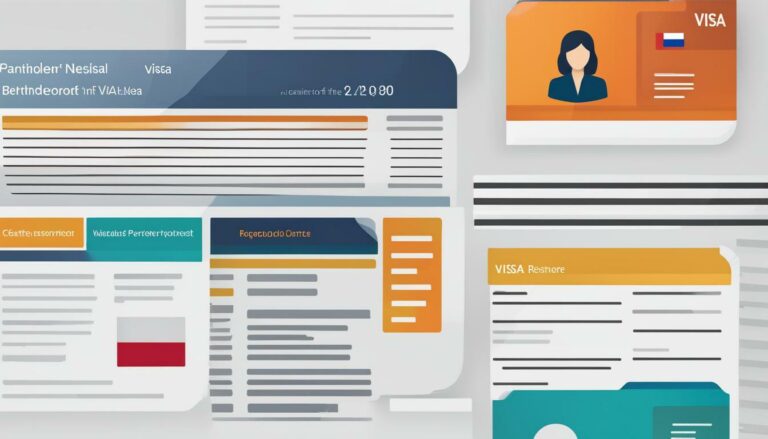Calculating Costs: How Much Funds Must You Have to Study in Finland as an International?
Studying in Finland as an international student requires careful planning and consideration of the necessary funds to cover tuition fees and living expenses. In this article, we will explore the financial requirements for studying in Finland, including the cost of tuition fees, living expenses, and other funding options available to students.
Key Takeaways:
- Non-EU students are required to pay tuition fees for English-taught bachelor’s and master’s programs, ranging from approximately €4,000 to €18,000 per year.
- Doctoral-level programs in Finland do not have tuition fees.
- Scholarship options are available for non-EU students to help cover tuition fees.
- Students must independently cover their everyday living costs, which typically range from €700 to €900 per month, depending on location.
- Student union fees, which are approximately €50 per year, may also be required.
- When applying for a residence permit, international students must demonstrate sufficient financial resources.
- For study programs one year or longer, students must have €6,720 in their bank account. For programs shorter than one year, students must have €560 per month.
- If an educational institution provides free accommodation and/or meals, the required amount may be lower.
- Documentation of funds, such as bank statements, is important, and the money should be in the student’s personal bank account.
- Proof of income, such as employment contracts, may be required for extended permits.
- Students can work up to 30 hours per week on average, and family members can apply for residence permits based on family ties.
Tuition Fees for International Students
Non-EU students studying in Finland are required to pay tuition fees for English-taught bachelor’s and master’s programs, but doctoral-level programs do not have tuition fees. The fees for these programs typically range from approximately €4,000 to €18,000 per year, depending on the university and the specific program. It is important to note that these fees can vary, so it is recommended to check with the university directly for the most accurate information.
However, there are scholarship options available for non-EU students to help cover these tuition fees. These scholarships are offered by various organizations and institutions in Finland, as well as by the Finnish government. They are awarded based on academic merit, and the application processes and eligibility criteria can vary. It is advisable to research and apply early to increase the chances of receiving a scholarship.
In addition to tuition fees, international students studying in Finland must also consider their living expenses. These expenses typically range from €700 to €900 per month, depending on the location and personal lifestyle. It is crucial to budget carefully and plan ahead to ensure that there are sufficient funds to cover these costs throughout the duration of the study program.
| Tuition Fees | Living Expenses |
|---|---|
| Approximately €4,000 to €18,000 per year | Approximately €700 to €900 per month |
When applying for a residence permit in Finland, international students must demonstrate sufficient financial resources. For study programs that are one year or longer, students must have a minimum of €6,720 in their bank account. For study programs shorter than one year, students must have €560 per month. It is important to provide documented evidence of these funds, such as bank statements, and to ensure that the money is in the student’s personal bank account. Proof of income, such as employment contracts, may be required for extended permits. It is advisable to consult with the Finnish immigration authorities for the most up-to-date information on the financial requirements for residence permits.
Aside from studying and living expenses, international students in Finland also have the opportunity to work part-time. Students can work up to 30 hours per week on average, which can help supplement their funds. However, it is essential to be aware of the regulations and limitations surrounding student employment in Finland, as there may be restrictions on certain types of work or hours during the academic year. It is recommended to consult with the university’s international student services or the Finnish immigration authorities for specific guidelines and regulations.
Living Expenses and Student Union Fees
In addition to tuition fees, international students must consider their everyday living costs, which typically range from €700 to €900 per month, depending on the location. These expenses include accommodation, food, transportation, and other daily costs. It is important for students to budget and plan accordingly to ensure they have enough funds to cover these expenses throughout their study period in Finland.
Accommodation costs can vary depending on whether students choose to live on-campus in university housing or rent a private apartment. On-campus housing options often provide a more affordable option, with shared facilities and utilities. Students can expect to pay approximately €250 to €500 per month for on-campus accommodation. Renting a private apartment may be more expensive, with prices ranging from €500 to €900 per month.
Food expenses can also vary depending on personal preferences and eating habits. Students have the choice of cooking their meals at home or eating out. On average, a student can expect to spend around €200 to €300 per month on groceries and dining out. It is worth noting that some educational institutions in Finland provide meal services or have cafeterias on campus, which can help reduce food expenses.
| Expense | Estimated Monthly Cost (€) |
|---|---|
| Accommodation | 250 – 900 |
| Food | 200 – 300 |
| Transportation | 50 – 100 |
| Utilities | 50 – 100 |
| Other Expenses | 150 – 250 |
Transportation costs in Finland can be managed through the use of public transportation, such as buses, trams, and trains. Monthly transportation passes can range from €50 to €100, depending on the city and distance travelled. Utilities, such as electricity, water, and internet, may add an extra €50 to €100 to the monthly expenses. Other miscellaneous expenses, including entertainment, personal care items, and study materials, can amount to approximately €150 to €250 per month.
In addition to these living expenses, international students may also be required to pay student union fees. Student union fees, typically around €50 per year, provide access to various student benefits and services, including healthcare, sports facilities, and discounts on cultural events. It is important to include student union fees in the overall budget when calculating the total cost of studying in Finland.
Financial Requirements for Residence Permit
When applying for a residence permit, international students must demonstrate sufficient financial resources, depending on the duration of their study program. The Finnish Immigration Service requires students to have a specific amount of funds to cover their living expenses during their stay in Finland.
For study programs lasting one year or longer, students must show proof of funds amounting to €6,720 in their personal bank account. This amount is considered sufficient to cover the living costs for a full academic year. However, for study programs that are shorter than one year, students must have a minimum of €560 per month to support themselves during their stay in Finland.
It’s important to note that if an educational institution provides free accommodation and/or meals to international students, the required amount of funds may be lower. In such cases, students must provide documentation from the institution, stating the provision of these services and the estimated value of the accommodation and meals.
When submitting the residence permit application, students should include relevant documents as evidence of their financial resources. Bank statements, clearly showing the funds in the student’s personal bank account, are typically required. It is crucial that the funds are readily available and accessible to cover the costs of living in Finland throughout the study period.
| Duration of Study Program | Minimum Required Funds |
|---|---|
| One year or longer | €6,720 |
| Shorter than one year | €560 per month |
It’s worth mentioning that additional documentation related to income may be required for extended permits. This could include employment contracts or other proof of income. It’s important to consult the Finnish Immigration Service or the embassy or consulate in your country for the most up-to-date information regarding the specific requirements for your residence permit application.
Furthermore, it’s essential for international students to be aware of the regulations surrounding student employment in Finland. Students are allowed to work up to 30 hours per week on average, which can provide additional financial support during their studies. Additionally, family members of international students may also be eligible to apply for residence permits based on family ties, further easing the financial requirements for studying in Finland.
Scholarship Options for Non-EU Students
To alleviate the financial burden, non-EU students can explore scholarship options specifically designed to support international students studying in Finland. These scholarships provide financial assistance towards tuition fees and living expenses, making it more accessible for students to pursue their education in Finland.
One such scholarship program is the Finnish Government Scholarship Pool, which is funded by the Ministry of Education and Culture. It offers scholarships for both bachelor’s and master’s degree programs, as well as doctoral studies. The scholarships cover the full or partial cost of tuition fees and provide a monthly allowance to help with living expenses.
Another scholarship option is the EDUFI Fellowship program, administered by the Finnish National Agency for Education. This program provides monthly grants for doctoral-level studies and research in Finnish universities. The grants cover living expenses and may also include a travel allowance.
Additionally, many Finnish universities offer their own scholarship programs for international students. These scholarships are often merit-based and can cover tuition fees, living expenses, or both. It is important to check with individual universities for specific scholarship opportunities and application procedures.
| Scholarship Program | Funding | Eligibility | Application Deadline |
|---|---|---|---|
| Finnish Government Scholarship Pool | Tuition fees and monthly allowance | Varies; check eligibility criteria | Varies; check application deadlines |
| EDUFI Fellowship program | Monthly grants for living expenses | Ph.D. students and researchers | Varies; check application deadlines |
| University-specific scholarships | Tuition fees, living expenses, or both | Varies; check eligibility criteria | Varies; check application deadlines |
It is important for non-EU students to thoroughly research and apply for these scholarship opportunities to ensure they have the financial support needed to pursue their studies in Finland. These scholarships not only alleviate the financial burden but also provide opportunities for academic and personal growth in a vibrant educational environment.
Working Opportunities for International Students
International students studying in Finland are allowed to work up to 30 hours per week on average, providing them with an opportunity to earn additional income to support their studies. Part-time work not only helps students meet their living expenses but also allows them to gain valuable work experience and develop important skills.
When it comes to working opportunities, students can explore various options, including both on-campus and off-campus jobs. On-campus jobs are often available within the educational institution itself and may include positions such as research assistants, library assistants, or student ambassadors. These jobs can provide students with a convenient work schedule and the opportunity to engage with the academic community.
Off-campus work opportunities can be found in sectors such as hospitality, retail, and customer service. Many international students find part-time jobs in restaurants, cafes, or retail stores, where they can interact with locals and enhance their language skills. It is important to note that the Finnish labor market can be competitive, so students should be proactive in their job search and consider networking and utilizing online job portals to find suitable employment.
International students should also be aware of the regulations surrounding student employment. According to Finnish law, students from outside the European Union (EU) or European Economic Area (EEA) must obtain a separate work permit alongside their student residence permit. However, this work permit is usually included in the student residence permit application process, making it easier for students to secure employment.
Benefits of Working While Studying
Working while studying in Finland not only helps international students financially but also provides numerous benefits. Some of the advantages of part-time work include:
- Financial independence: Earning an income can help students cover their living expenses and reduce their dependence on external funding sources.
- Enhanced language skills: Working in a Finnish-speaking environment allows students to improve their language skills and gain a deeper understanding of the local culture.
- Professional development: Part-time work provides students with real-world work experience and the opportunity to develop essential skills such as time management, teamwork, and communication.
- Networking opportunities: Connecting with professionals in the industry through work can open doors for future career opportunities and internships.
It is important for international students to strike a balance between their academic commitments and part-time work. While taking on a job can be beneficial, students must ensure that their studies remain the top priority and that they have enough time to dedicate to their coursework and assignments.
Family Permits for International Students
Family members of international students studying in Finland may be eligible for residence permits based on family ties, allowing them to accompany the student and live in Finland. The Finnish Immigration Service provides guidelines and eligibility criteria for family members who wish to join their loved ones during their study period. It is important for international students to understand the financial requirements and funding options associated with family permits.
International students must demonstrate sufficient financial resources to support themselves and their family members while studying in Finland. For family permits, the minimum amount of funds required is higher than for single student permits. According to the Finnish Immigration Service, the financial requirement for the main applicant is €560 per month, and for each family member, it is €400 per month.
To prove financial resources, international students must provide bank statements or other relevant documents showing the availability of funds. It is essential that the funds are in the student’s personal bank account. Additionally, proof of adequate health insurance coverage for each family member is required.
It is worth noting that family members of international students who hold residence permits based on family ties are allowed to work in Finland without any restrictions. This provides an opportunity for family members to contribute to their finances and enhance their overall study abroad experience. However, it is important to be aware of any income limitations that may apply to the student’s residence permit.
| Financial Requirement | Main Applicant (per month) | Each Family Member (per month) |
|---|---|---|
| Family Permit | €560 | €400 |
Summary:
- Family members of international students studying in Finland may be eligible for residence permits based on family ties.
- The financial requirement for family permits is higher than for single student permits.
- International students must provide proof of sufficient financial resources and health insurance coverage for each family member.
- Family members holding residence permits based on family ties are permitted to work in Finland.
Duration of Study Programs and Financial Considerations
The duration of the study program plays a crucial role in determining the financial requirements for international students studying in Finland. Depending on the length of the program, students need to ensure they have sufficient funds to cover their tuition fees and living expenses for the specified duration.
For longer study programs that last for one year or more, international students are required to have a minimum of €6,720 in their bank account when applying for a residence permit. This amount is deemed enough to cover the living expenses for a longer period. However, for study programs that are shorter than one year, the financial requirement is €560 per month.
In some cases, educational institutions in Finland may provide free accommodation and/or meals to international students. If this is the case, the required amount of funds may be lower as these expenses are covered by the institution. It is recommended that students inquire with their respective institutions regarding the availability of such provisions.
When documenting and proving financial resources, international students must provide bank statements to verify the funds in their personal bank account. It is important to ensure that the money is readily available and easily accessible. Proof of income, such as employment contracts, may be required for students applying for extended residence permits.
| Financial Requirement | Duration of Study Program |
|---|---|
| €6,720 | One year or longer |
| €560 per month | Shorter than one year |
International students in Finland also have the opportunity to work up to 30 hours per week on average, which can help supplement their funds. Additionally, family members of international students can apply for residence permits based on family ties, allowing them to live and study in Finland as well.
In summary, international students studying in Finland must carefully consider the duration of their study program and the corresponding financial requirements. It is crucial to have a clear understanding of the tuition fees, living expenses, and required funds for a successful and financially sustainable academic journey in Finland.
Accommodation and Meals Provided by Educational Institutions
Some educational institutions in Finland offer free accommodation and/or meals to international students, which can significantly impact the amount of funds required for studying. This can be a valuable option for students seeking to minimize their living expenses and maximize their budget for other educational expenses. When considering study options in Finland, it is important to research and inquire about the availability of such accommodation and meal provisions.
Table 1 below provides an overview of the educational institutions in Finland that offer free accommodation and/or meals to international students:
| Institution | Accommodation | Meals |
|---|---|---|
| University of Helsinki | Yes | No |
| Aalto University | No | Yes |
| University of Turku | Yes | Yes |
Note: The availability of free accommodation and/or meals may vary depending on the specific study program, student’s eligibility, and availability of resources at each institution. It is recommended to check with the respective educational institution for the most up-to-date information.
For students who are eligible for and choose to take advantage of free accommodation and/or meals provided by educational institutions, it is important to note that the required amount of funds for studying in Finland may be lower. This can be a significant financial relief for students, allowing them to allocate their funds towards other educational expenses or even savings for the future.
Documenting and Proving Financial Resources
International students studying in Finland must provide documentation and proof of their financial resources when applying for a residence permit or extended permits. It is important to have all the necessary documents in order to meet the financial requirements set by the immigration authorities. This ensures that students have enough funds to support themselves during their studies and stay in Finland.
To document and prove financial resources, students need to provide bank statements that show the required amount of funds in their personal bank account. This includes the minimum amount of €6,720 for a one-year or longer study program, or €560 per month for study programs shorter than one year. It is crucial that the money is available in the student’s personal bank account and can be easily accessed.
In addition to bank statements, students may also need to provide proof of income, such as employment contracts or scholarship letters, especially when applying for extended permits. These documents demonstrate that students have a stable source of funding or financial support throughout their studies in Finland. It is essential to present accurate and up-to-date financial documentation to avoid any delays or complications in the application process.
When preparing the financial documents, it is advisable to consult the official guidelines provided by the Finnish immigration authorities or seek assistance from the educational institution’s international student office. They can provide detailed instructions on the specific documents required and offer guidance on how to meet the financial requirements for residence permits. By submitting complete and accurate financial documentation, international students can ensure a smooth application process and focus on their studies in Finland.
| Financial Requirements | Study Program Duration | Required Funds |
|---|---|---|
| One year or longer | €6,720 | |
| Shorter than one year | €560 per month |
Conclusion
Studying in Finland as an international student requires careful financial planning and consideration of the necessary funds to cover tuition fees, living expenses, and other financial requirements. Non-EU students are required to pay tuition fees for English-taught bachelor’s and master’s programs, which range from approximately €4,000 to €18,000 per year. However, doctoral-level programs do not have tuition fees, providing an excellent opportunity for those seeking to pursue advanced studies.
Fortunately, there are scholarship options available for non-EU students to help alleviate the burden of tuition fees. These scholarships can significantly contribute to making education more accessible and affordable. It is advisable for students to research and explore the various scholarship programs, as they can provide valuable financial support and recognition for academic achievements.
In addition to tuition fees, students must also independently cover their everyday living costs. On average, living expenses range from €700 to €900 per month, depending on the location. It is important to note that student union fees, which are approximately €50 per year, may also be required. These fees contribute to supporting student services and activities on campus.
When applying for a residence permit, international students must demonstrate sufficient financial resources. For study programs lasting one year or longer, students must have a minimum of €6,720 in their bank account. For study programs shorter than one year, students must have €560 per month. However, if an educational institution provides free accommodation and/or meals, the required amount may be lower. It is crucial to provide documentation of funds, such as bank statements, and ensure that the money is in the student’s personal bank account. Proof of income, such as employment contracts, may be required for extended permits.
Moreover, students studying in Finland have the opportunity to work up to 30 hours per week on average, allowing them to supplement their funds and gain valuable work experience. Additionally, family members can apply for residence permits based on family ties, enabling them to join the student in Finland and share in the educational and cultural experience.
In conclusion, studying in Finland as an international student offers a world-class education and a rich cultural experience. By carefully calculating the costs and considering the available funding options, students can pursue their academic goals and make the most of their time in this beautiful Nordic country.
FAQ
Q: What are the financial requirements for studying in Finland as an international student?
A: The financial requirements for studying in Finland include tuition fees, living expenses, and sufficient funds for a residence permit. Non-EU students are required to pay tuition fees, which range from approximately €4,000 to €18,000 per year for English-taught programs. Scholarships are available to help cover tuition fees. In addition, students must have enough funds to cover their everyday living costs, which typically range from €700 to €900 per month. When applying for a residence permit, students must demonstrate financial resources, such as having €6,720 in their bank account for a one-year or longer study program.
Q: How much are the tuition fees for international students in Finland?
A: The tuition fees for international students in Finland vary depending on the program. For English-taught bachelor’s and master’s programs, the fees range from approximately €4,000 to €18,000 per year. However, doctoral-level programs do not have tuition fees. Non-EU students can also explore scholarship options to help cover their tuition fees.
Q: What are the living expenses for international students in Finland?
A: International students in Finland should budget for their everyday living expenses, which typically range from €700 to €900 per month. These expenses include accommodation, food, transportation, and other daily costs. Students may also be required to pay student union fees, which are approximately €50 per year.
Q: What are the financial requirements for a residence permit in Finland?
A: When applying for a residence permit in Finland, international students must demonstrate sufficient financial resources. For a one-year or longer study program, students must have €6,720 in their bank account. For study programs shorter than one year, students must have €560 per month. It is important to provide documentation of funds, such as bank statements, and ensure that the money is in the student’s personal bank account. Proof of income, such as employment contracts, may be required for extended permits.
Q: Are there scholarship options available for non-EU students studying in Finland?
A: Yes, there are scholarship options available for non-EU students studying in Finland. These scholarships can help cover tuition fees and living expenses. Non-EU students can explore different scholarship programs and check their eligibility criteria and application processes.
Q: Can international students work while studying in Finland?
A: Yes, international students can work up to 30 hours per week on average while studying in Finland. This can be an opportunity to supplement their funds and gain work experience. However, it is important to be aware of the regulations and limitations surrounding student employment.
Q: Can family members of international students apply for residence permits in Finland?
A: Yes, family members of international students can apply for residence permits in Finland based on family ties. They must meet the financial requirements and follow the application process for family permits.
Q: How does the duration of study programs affect the financial considerations for international students in Finland?
A: The duration of study programs can affect the required amount of funds for international students in Finland. For a one-year or longer study program, students must have €6,720 in their bank account. For shorter programs, students must have €560 per month. It is important to consider the length of the program when calculating the necessary funds.
Q: Are there any scenarios where educational institutions in Finland provide free accommodation and/or meals to international students?
A: Yes, there are scenarios where educational institutions in Finland provide free accommodation and/or meals to international students. If an educational institution offers these benefits, the required amount of funds for studying in Finland may be lower. However, it is important to check with the institution and ensure that the necessary documentation is provided.
Q: What documents are needed to prove financial resources as an international student studying in Finland?
A: To prove financial resources as an international student studying in Finland, it is important to provide documentation such as bank statements. The funds must be in the student’s personal bank account. Proof of income, such as employment contracts, may be required for extended permits.
Source Links
- https://www.studyinfinland.fi/admissions/fees-and-costs
- https://migri.fi/en/income-requirement-for-students
- https://migri.fi/en/studying-in-finland







